In the retrospective analysis of the history that put this country on the path of a Communist totalitarian territory – no longer a nation-state, no longer a free country, no longer capable of moral value judgments relative to our historical traditions, a Commission was found that reveals the turning point – the Y in the road as it were. The purpose of the Commission was to define an industrial policy for the United States. Industrial policy is generally a feature of communist governments for central planning of the economy. Since the Commission was led by a computer industry CEOs, the policies they recommended were for the benefit of the computer industry turning the government into the manager of people via the national systems they recommended and implemented with the CEOs pulling the strings.
The significance of linking the technology agenda to an industrial policy is because there is a Supreme Court precedent to break up this monopoly of power and consequent wealth.
In 1933, Franklin Delano Roosevelt attempted the same type of transfer of governing power to the private sector with his industrial policy. That policy was called the National Industrial Recovery Act (NIRA). Most of the NIRA was struck down by the Supreme Court in a case titled Schecter Poultry Corporation v. United States. Obviously, the elements of that case are not exactly the same as our situation today but they are close enough. The solution to our problems with the capture of our government is that case.
More information on the subject can be found in previous research:
At the time Commission was established the U.S. wasn’t a communist country but as one follows the history, the evolution is obvious. We have been living through a slow-rolling, catastrophic systemic failure of our country due to the computer industry capture of our government.
On June 28, 1983, President Ronald Reagan signed Executive Order 12428, establishing the President’s Commission on Industrial Competitiveness. At the same time, Reagan announced the appointment of John A. Young as a member of President’s Commission on Industrial Competitiveness and designated him as Chairman. The Commission informally was known as the Packard Commission for the company that Young represented – Hewlett-Packard.
On August 4, 1983, Reagan made a statement about the Commission and a press release was issued naming the rest of the members of the Commission. Michael Porter was one of the members. The following are significant excerpts from Reagan’s statement:
America needs her best minds to create technologies that will enhance America’s economic leadership in the 1980’s. To sustain high rates of real economic growth, we must continue to create new “miracles” of high technology—miracles both for innovation and for modernization of the major areas of our economy in manufacturing, agriculture, and services.
—Recommending policy changes at all levels of government to improve the private sector’s ability to compete in the international marketplace and to maintain and create opportunities for American workers.
New developments in information processing, biology, and materials science are spawning sunrise industries. They are improving our quality of life and standard of living in ways few could have foreseen. These technologies are transforming all sectors of our economy and even our lifestyles. Not only can information processing capabilities improve the way farmers manage their livestock, provide the “brains” in a flexible manufacturing system, and keep track of the paper flow in an office; they will also change the way we live.
In 1988, Lou Cannon reporter for the Washington Post wrote about Reagan’s history. Even though he says that Reagan changed his views on world federalism, clearly, if you follow his administration and his legacy, his rhetoric may have changed, but he was still a world federalist. He sold out our country and he privatized government.
On August 6, 1983, Reagan gave a radio address on international trade. See Grand Theft Country: Treason by Treaty.
I’d like to talk to you today about trade-a powerful force for progress and peace, as you well know. The winds and waters of commerce carry opportunities that help nations grow and bring citizens of the world closer together. Put simply, increased trade spells more jobs, higher earnings, better products, less inflation, and cooperation over confrontation. The freer the flow of world trade, the stronger the tides for economic progress and peace among nations.
I believe our challenge is to marshal the power of this country’s best minds and create the technology that will restore America’s economic leadership . . .
We believe the U.S. trade position would be strengthened by uniting many of this government’s trade responsibilities under one roof, so we proposed legislation to create a department of international trade and industry.
On January 25, 1985, the President’s Commission on Industrial Competitiveness produced a two volume report titled, The Global Competition: The New Reality on their findings.
The report was obviously totally self-serving for business and in particular, the computer industry. This Commission changed the mission of government to serve business. They turned the government into a manpower service corporation for the management of people – reducing citizens to mere workers.
It was at this point in the history of our country – with the recommendations of this commission for an industrial policy of “free trade” with an office of trade policy embedded in the Executive Branch that our country was set up for a marxist takeover. The trade deals were negotiated by people interested in globalizing the computer and telecommunications technology businesses.
The idea of trade adjustment and retraining the work force supposedly as mitigation for the economic devastation (war on them) was a setup to blame the working people for their failure to thrive in the “new economy”. Citizens were set up to fail while the “free traitors” negotiated national economic seppuku – profiting from gutting our economy. The economic policies of this Commission began our long, slow slide into communism and the technocratic tyranny under which we are now all living.
1986 – John Young established the private sector, Council on Competitiveness (See Members)
The Council sets an action agenda to drive U.S. economic competitiveness and leadership in world markets in order to raise the standard of living for all Americans. We focus on strengthening U.S. innovation, upgrading the workforce, and benchmarking national economic performance.
Michael Porter joined the Council and and began leading regional economic central planning behind his free market schtick. Innovation Clusters
In 1989, John Young founded the Technology CEO Council. The following is an excerpt from the Tech CEO website.
The Technology CEO Council is the information technology industry`s public policy advocacy organization comprising Chief Executive Officers from America’s leading information technology companies.
Founded in 1989, and formerly known as the Computer Systems Policy Project, The Technology CEO Council is dedicated to advancing policies that ensure and promote innovation and U.S. competitiveness through technology leadership. The CEOs regularly visit Washington to meet with policymakers about issues of importance to the high-tech industry and offer insights and recommendations through reports and white papers on issues having a transformative impact on society.
As some of the nation’s largest employers, Technology CEO Council companies generate $250 billion in annual revenues and employ over 700,000 workers. Currently, the Technology CEO Council is focused on public policy initiatives related to U.S. competitiveness, 21st Century infrastructure, innovation and trade as well as how technology can help address the nation’s health care and energy challenges.
Computer Systems Policy Project (CSPP) probably took the formal name Tech CEO Council because the Council was who they were and the CSPP was what they were doing. John Young was the founder of both the organization and the project. The purpose of CSPP was to design national networked computer systems for the management of the following systems: health care system, education, energy and the broadband rollout for universal internet access. Elements and phases of these systems were presented to the public as required for the United States to compete in the global economy. None of that was true. These were areas where government could impose control on both the economic sector and the people while making a lot of money for the computer/technology industry.
Welcome to CSPP, an affiliation of the chief executive officers of major American computer companies that develop, build, and market information processing systems and related software and services.
Apple – Compaq – Data General – Digital Equipment – Hewlett-Packard – IBM – NCR – Silicon Graphics – Stratus Computer – Sun Microsystems – Tandem – Unisys
CSPP CEOs develop and advocate public policy postions on trade and technology issues. Viewing both as interrelated, CSPP has offered thoughtful public policy proposals on market access, antidumping, and export control policy. CSPP has also made recommendations to the government on critical technology intiatives such as the National Information Infrastructure, federal R&D; support, and federal laborary research. CSPP continues to work on these and other issues that will help their industry, and others, meet the challenges of a leadership role in a global marketplace.
1992 – Perspectives on U.S. Technology and Trade Policy: The CSPP Agenda for the 103rd Congress
1995 – Perspectives on the Global Information Infrastructure
Putting the Private Sector in the Driver’s Seat – The private sector has taken the lead in creating and making available the networks, appliances, information services and applications that will constitute the GII. The role of governments around the world is to nurture the GII by establishing policies that support and encourage private sector initiatives. Governments must also ensure that private sector views are fully represented in any international dialogue about the GII.
The Global Information Infrastructure (GII) is more than a “network of networks.” In CSPP’s vision, the GII is a worldwide assembly of systems that integrates five essential components:
• communications networks, such as telephone, cellular, cable and satellite networks;
• information equipment/appliances, including computers, televisions and telephones;
• information resources, including educational materials, medical databases, and entertainment and commercial programs;
• applications, such as telemedicine, electronic commerce and digital libraries; and
• people of all skill levels and backgrounds.
Launching the Global Information Infrastructure
The GII is not waiting for government action. Industry is creating and deploying many innovative, global applications . . . . CSPP companies have established domestic and transnational applications to support electronic mail systems, distance learning projects, commercial networks, and interconnected libraries, medical facilities and service organizations, among others. Around the world, other companies are piloting similar applications . . .
1995 – Public Policy and the U.S. Computer Industry: Freedom to Grow
Specific national applications policy:
1993 – Information Technology’s Contribution to Health Care reform
1994 – Information Technology’s Contribution to Lifelong Learning
President’s Committee of Advisors on Science and Technology (PCAST)
In November of 1993, President Bill Clinton established the President’s Commission on Science and Technology (PCAST). On August 4, 1994 the White House Office of the Press Secretary issued a press release announcing appointments:
President Clinton today announced the membership of a private-sector committee
President Clinton established the PCAST by Executive Order in November 1993. Its members have established track records of significant achievement and represent the diverse perspectives and expertise in the U.S. science and technology establishment. The committee is co-Chaired by John H. Gibbons, Assistant to the President for Science and Technology, and by John A. Young, former President and CEO of the Hewlett-Packard Company.
The appointment of private-sector advisors to the President highlights the Administration’s goal of fostering public/private partnerships to achieve national science and education goals. “To achieve our goals, we must strengthen partnerships with industry, with state and local governments, and with schools, colleges and universities across the country,” said President Clinton. “My goal for this committee is to help encourage those partnerships.”
A diagram of PCAST’s position in the Clinton Administration was found on the website of the National Coordination Office. It was linked off the government’s website for High Performance Computing and Communications (HPCC).
John H. Gibbons, Public Sector ♦ John A. Young, Private Sector
The members of the Technology CEO Council were the industry leaders steering/leading the Computer Systems Policy Project (CSPP) from the outside of government.
Technology CEO Council members that executed the coup d’etat on our government.
Initially, these CEOs talked about competition with Japan and Germany. By 2005, they were promoting trade in technology with China and policies for Global Trade & Sourcing.
Telecommunications
This article is a work in progress. Obviously, from this point is not finished.
TechNet
NYT Story on TechNet, January 2001
State Department, January 2001, Building Innovative Economies – India
____
Our manufacturing base was exported destroying America’s industrial town devasted and people formerly employed in manufacturing structurally unemployed.
Our K-12 system of education was redesigned for business such that workforce training was integrated into the curriculum.
Our health care system was redesigned to make the entire population of the U.S. available for biomedical research – turning people into lab rats.
Our universities have become hot houses for marxism.
October 1, 2001, President George W. Bush signs PCAST Executive Order continuing the high tech coup d’etat
Pied Pipers to Fascism/Communism
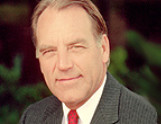 John A. Young
John A. Young
Mr. Young, CEO and member of the Board of Directors of Hewlett-Packard, director of the Wells Fargo Bank, Wells Fargo & Co., and SRI International. He is cochairman of the Western Technical Manpower Council, a member of the Business Council, the Business Roundtable, the executive committee of Machinery and Allied Products Institute (MAPI), and a member of the National Industrial Advisory Council of the Opportunities Industrialization Center (OIC).
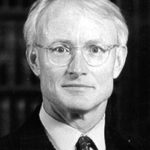 Michael Porter
Michael Porter
Harvard Professor (biography)
Dec 14, 1992, Clinton Presidential Transition Economic Conference, Michael Porter, John Sculley, Apple
The Council on Competitiveness promoted Porter’s ideas on industry clusters and regional economies. Steering Committee
University of Minnesota network (MBBNET) 2001 article Professor Porter Goes to Washington
Porter’s star soared with publication of The Competitive Advantage of Nations in 1990, which, according to the Cambridge, Massachusetts-based Monitor Group, a strategic consulting group he co-founded, “develops a new theory of how nations, states, and regions compete and their sources of economic prosperity.” It is in this book that Porter laid out his ideas on economic geography and the role of clusters — geographically concentrated groups of interconnected companies and associated institutions in a particular field linked by common technologies and skills. These ideas have guided economic policy throughout the world/
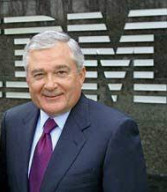 Lou Gerstner, CEO, IBM
Lou Gerstner, CEO, IBM
“Reinvention of Education”
Under the leadership of tech company CEO’s children ceased to be children. They were redefined as embryonic workers and the schools became incubators for the workforce.
Background on education “reform”.
1987 Workforce 2000, Work and Workers for the 21st Century
Tangled Web by Joe Esposito – education reform with no public debate
Joe Esposito graphic of leadership in the “reinvention of education“ phases of implementation. (Note: the person doing the graph was not aware of the tech company coup d’etat on our government. Look for tech company CEOs.)
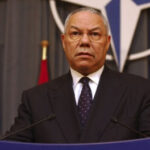
Colin Powell, Chairman of the Joint Chiefs
The Green Marshall Plan
(Note: See section on John H. Gibbons)
Lou Gerstner, IBM – “reinvention of schools”
Edward R. McCracken, Silicon Graphics, Tularik, Inc., biotechnology, (began at HP), Co-Chair of Clinton’s National Information Infrastructure Advisory Council and as co-chair of Joint Venture: Silicon Valley
James A. Unruh, Chairman and CEO of Unisys, Mr. Unruh is a member and past chairman of the Computer Systems Policy Project, an affiliation of American computer company CEO’s, formed to give the computer industry a unified voice of advocating public policy positions affecting technology and trade. Mr. Unruh is a member of the President’s National Security Telecommunications Advisory Committee.
John Young went on to organize the leaders of the Tech Industry in preparation for the computer industry capture of our government. Michael Porter began writing on his ridiculous theories on national economic competitiveness in a global economic competition that the United States could NOT win and it did not require an economist to figure that out.
Michael Porter began his proselytizing on competition and how to be competitive in a global economy of “free trade” to the point of instructing governors how to change policy in their states to be competitive through central planning of the states economic regions (cluster studies and “partnering with the private sector”. The Chamber of Commerce picked up Porter’s ideas for the cluster studies as well. Porter’s designs of economic reorganization were/are the core elements to convert the economy of the United States to the communist Chinese model of state-capitalism.
Updated 12/13/2023



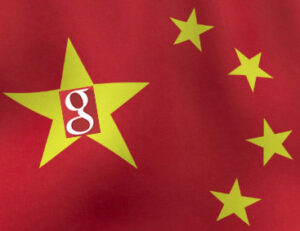
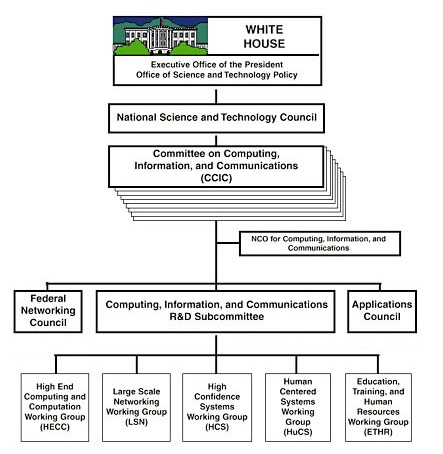

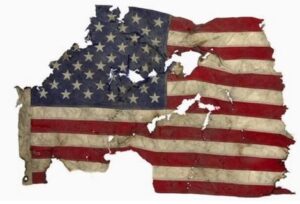




One Comment
Kristin
” The role of governments around the world is to nurture the GII by establishing policies that support and encourage private sector initiatives…” it is? That’s weird, I don’t remember reading that in any of my sociology textbooks – but anyway, back to the point: https://time.com/6110450/kalamazoo-foundation-for-excellence/ ““Four! Hundred! Million! Dollars!” he shouted, in July, to city residents in Bronson Park, a leafy plaza adorned with bronze busts and plaques honoring pioneers and philanthropists.
Anonymous donors had just given what is thought to be the largest-ever gift to support a municipality, and for city officials, it felt like winning the lottery. It was also a win for two of Kalamazoo’s richest men, philanthropists William Parfet and William Johnston, who created the foundation that received the money and that will determine how most of it is spent.” < copy paste from source link. OK now imagine any town with a "de-funded" police department and imagine the residents of said town pooling together their own funds for a new, completely privately funded law enforcement group. Imagine instead of the residents doing so but a foundation (usually with a catchy homey name, like "Any Town Residents For De-funding Police Department" now do you catch the drift? Vicky one thing that protects us from corporate or tyrannical or sovereign rule, I mean we as American individual persons is our government that we made, as Americans, and we swore to uphold each and every rule we created "by the people, for the people". By the way it was from your writings in http://www.channelingreality.com (Vicky's old & wonderful site, readers, in case you didn't know) I learnt Mussolini defined fascism is corporatism. Corporations don't give you your Constitutional Right. I think a lot of people see all this private investment as a good thing, or a bad thing, but I think most people won't understand the ramifications of corporate rule until it's too late.